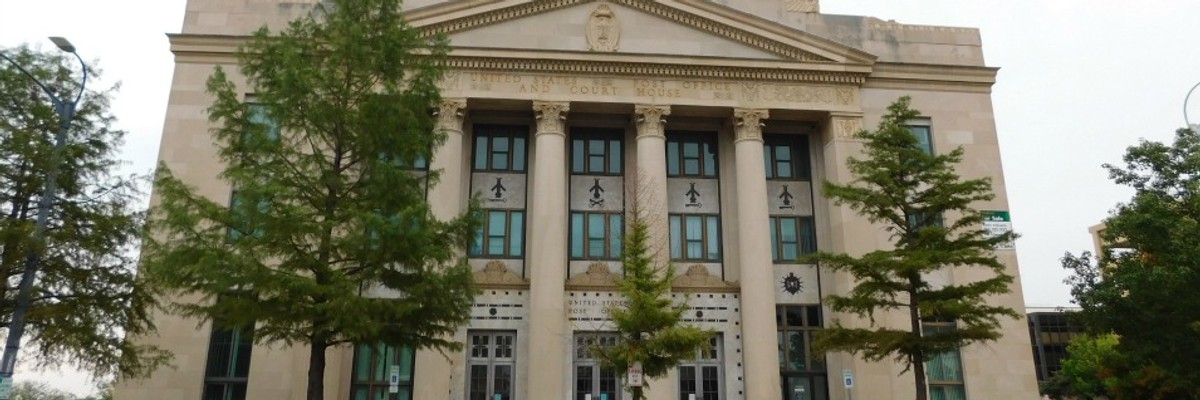Confirming the fears of legal experts and immigrant rights advocates, undocumented immigrants are declining to testify against their abusers in domestic violence cases, for fear that they will be apprehended and potentially deported by Immigration and Customs Enforcement (ICE) agents who make arrests at courthouses.
One city attorney, Kristin Bronson of Denver, reported to NBC News that she has been forced to drop at least 30 domestic violence cases since President Donald Trump entered office in January 2017, because victims refuses to appear in court.
"Countless immigrants...remain open to unfettered intimidation, harassment, and detention by federal immigration officials. The courthouse doors remain effectively closed to immigrants." --Ivan Espinoza-Madrigal, Lawyers' Committee for Civil Rights and Economic Justice
"What we've found in Denver is people are not showing up because they're afraid that they might get apprehended in the hallways," Bronson told NBC News. "It means that abusers are going without consequences. It means that abusers are beginning to feel that they are immune from prosecution, and it's become, unfortunately, a tool to further victimize women who are the victims of domestic violence."
NBC's report offers the latest evidence of the tangible damage Trump's immigration crackdown is having on immigrant communities. As Common Dreams reported this week, more than 40 immigrants have been arrested by ICE after coming forward to retrieve their unaccompanied family members. Detention centers for children who have crossed the U.S.-Mexico border without parents or guardians are nearly at capacity because fewer children are being released to their families, largely due to family members' fears of ICE arrests.
Under its "Sensitive Locations" policy, ICE is prohibited from making arrests at schools--although numerous undocumented immigrants have been detained while taking their children to school--as well as hospitals and places of worship.
Massachusetts Attorney General Maura Healy is among the critics who argue that courthouses should also be safe places for undocumented immigrants to appear without fearing arrest, for precisely the reason Bronson has called attention to. The Trump administration officially ordered ICE agents to make arrests at courthouses earlier this year.
Trump's crackdown on immigration is "undercutting our ability, as law enforcement, to develop the critical trust to keep our communities safe," Healy said in a statement.
Earlier this week, a Massachusetts Supreme Judicial Court judge upheld ICE's right to apprehend immigrants at courthouses, dismaying immigrant rights advocates.
"Our clients--and countless immigrants in Massachusetts and across the country--remain open to unfettered intimidation, harassment, and detention by federal immigration officials. The courthouse doors remain effectively closed to immigrants," Ivan Espinoza-Madrigal, executive director of the Lawyers' Committee for Civil Rights and Economic Justice, told the Boston Globe.

